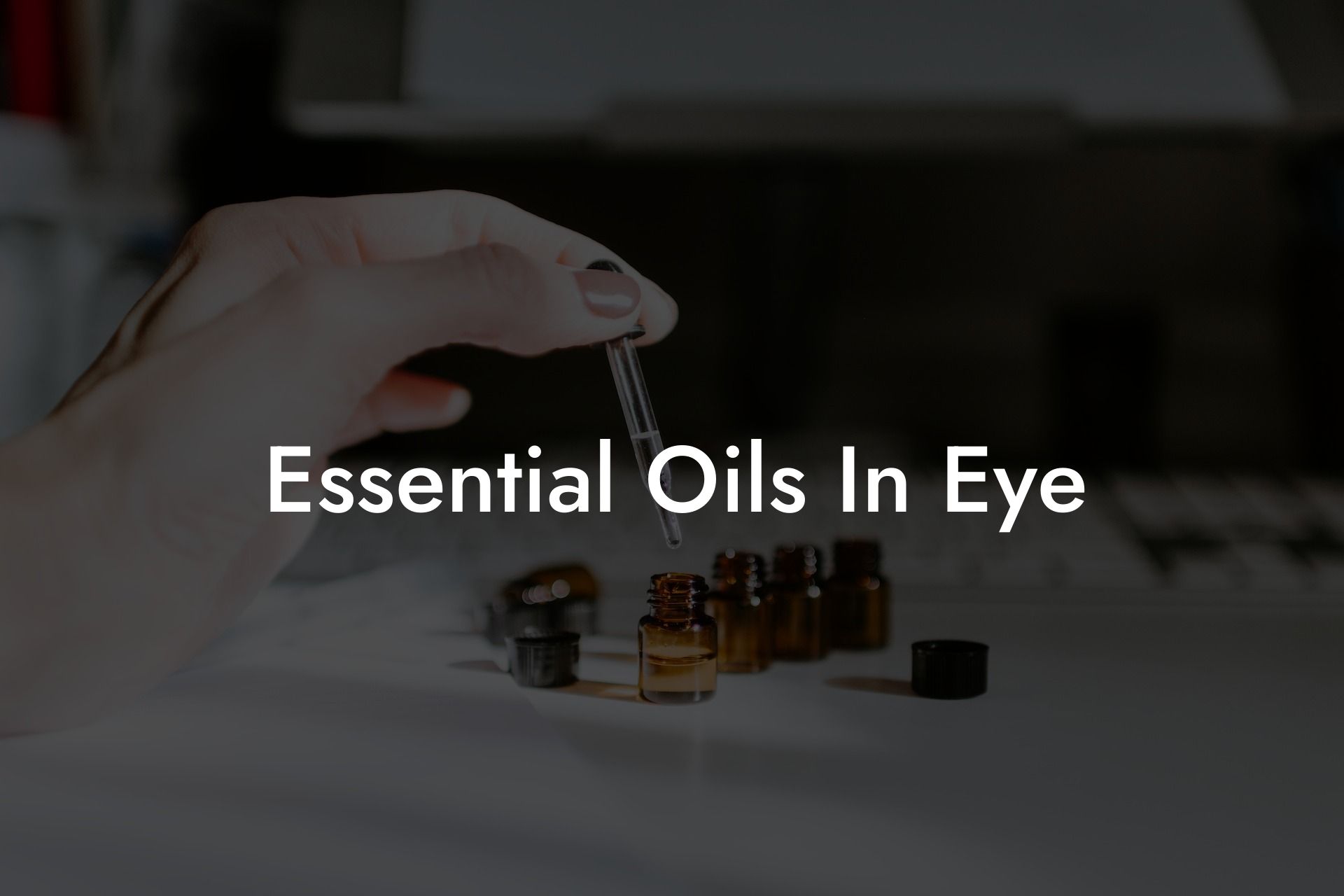Vision is an essential part of our daily lives, and it’s crucial to take proper care of our eyes. One way to help promote eye health is through the use of essential oils. This guide will explore the benefits of using essential oils for eye health, provide recommendations on which oils to use, and offer practical tips on how to incorporate them into your daily routine.
Table of Contents
The Benefits of Essential Oils for Eye Health
Essential oils are derived from plants and have been used for centuries for their therapeutic properties. For eye health, specific essential oils can help with various issues, including:
- Reducing inflammation
- Easing eye strain and fatigue
- Supporting eye tissue regeneration
- Promoting better sleep, in turn, helping the eyes to rest and repair
- Improving overall eye health and function
Choosing the Right Essential Oils for Your Needs
When it comes to promoting eye health, below are a few essential oils that stand out for their therapeutic benefits:
- Lavender: Known for its soothing and anti-inflammatory properties, lavender oil can help relieve eye strain and promote relaxation.
- Frankincense: With its uplifting, earthy scent, frankincense oil can help reduce inflammation, support eye tissue regeneration, and improve overall eye function.
- Peppermint: Peppermint oil can provide cooling relief to tired, strained eyes, and helps improve focus and alertness.
- Rosemary: High in antioxidants, rosemary oil can help protect eyes from oxidative damage and support overall eye health.
- Chamomile: Another calming and soothing oil, chamomile can help reduce inflammation and promote a restful night’s sleep.
How to Use Essential Oils Safely for Eye Health
While essential oils can provide numerous benefits for your eyes, it’s important to follow these guidelines for safe and effective use:
- Always dilute essential oils in a carrier oil (such as coconut or jojoba oil) before applying them to the skin near the eyes to avoid irritation. A safe dilution ratio is typically 1-2% essential oil to carrier oil.
- Never apply undiluted essential oils directly to your eyes or eyelids. Doing so can cause severe irritation or damage to your eyes.
- Always do a patch test on your wrist or inner elbow before using any new essential oil to make sure you don’t have an adverse reaction.
- Consult with a qualified aromatherapist or healthcare professional before using essential oils if you have any existing eye conditions or concerns.
Essential Oils In Eye Example:
One way to incorporate essential oils for eye health into your daily routine is to create a soothing eye pillow infused with your chosen oil. Here’s a simple DIY recipe:
- Mix 1-2 drops of your chosen essential oil (such as lavender or chamomile) with a tablespoon of carrier oil.
- Take a small, cotton fabric bag or pouch and fill it with flaxseed or rice, then add the essential oil and carrier oil mixture to the filling.
- Seal or sew the bag closed, making sure to leave enough space for the seeds to move around and distribute the oils evenly.
- Place the eye pillow in the freezer for a few hours to add a cooling sensation.
- When ready for use, lay back, place the pillow gently over your eyes, and relax for 10-20 minutes.
With the right essential oils, safe practices, and a little creativity, you can enjoy the benefits of essential oils for eye health. No longer do you have to let eye strain and fatigue stand in the way of living your best life. Share this guide with friends and family to spread the word on how essential oils can contribute to better eye health. For more essential oil tips and information, be sure to explore our other guides on Oshu Oils and browse our range of premium quality essential oils to start your journey to better eye health today.





















